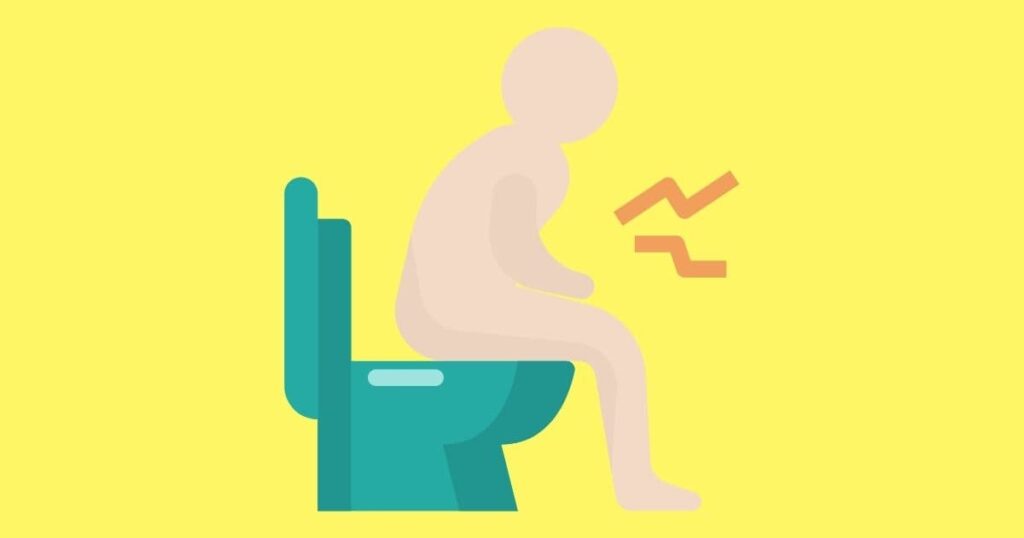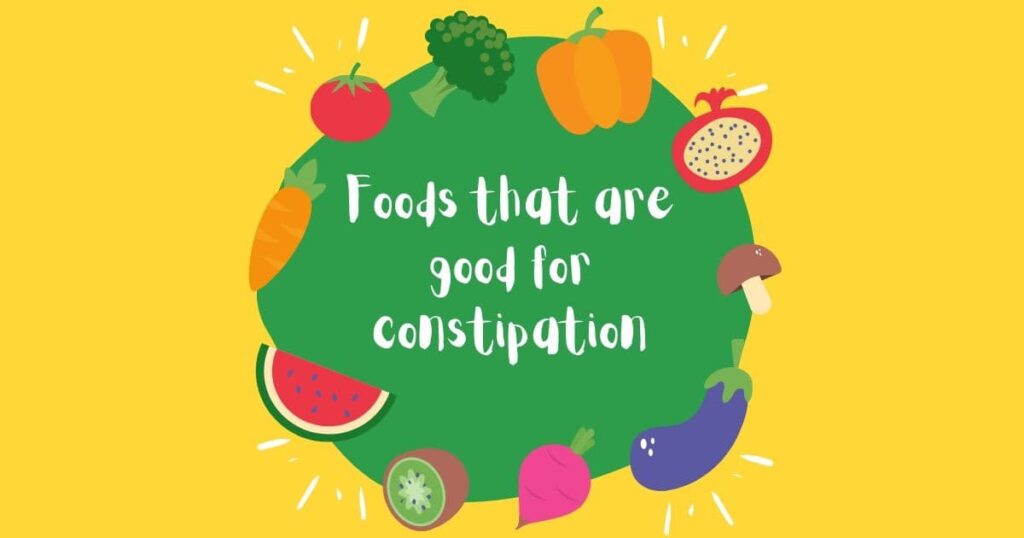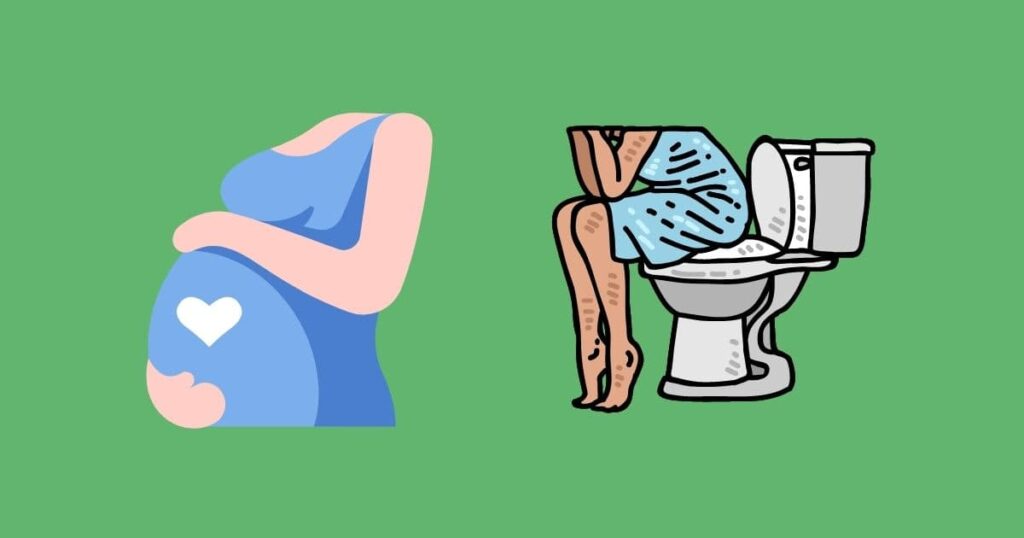Constipation: Pregnant Women, Babies, Treatment Methods
Constipation is the name given to the condition of three or fewer defecations per week due to slow bowel movements.
Constipation, which causes adverse conditions such as defecation difficulty, incomplete emptying of stool, painful defecation and bloating, is common among intestinal disorders.
Constipation can sometimes be seen as a result of obstruction and sometimes as a slowdown in bowel movements.
Living conditions and diets can cause constipation in women, men, babies, children and adults. In addition to foods that are good for this condition, which negatively affects the quality of life, there are also drugs. In severe cases of constipation, medication may be required.
Long-term constipation can be caused by serious health problems.
If there are symptoms such as abdominal pain, weight loss, bleeding from the anus along with constipation, the cause of this problem should be investigated with colonoscopy and laboratory tests.

What Will We Learn?
What Are The Symptoms Of Constipation?
- Defecation less than 3 times a week.
- The stool is dry, lumpy and hard.
- Difficulty and pain during defecation.
- The feeling of not emptying the entire stool during defecation.
What Causes Constipation?
In the formation of constipation, which is defined as difficulty in defecation, there are factors such as digestive system diseases, unhealthy diet and dietary habits, sedentary life, and drug use.
The causes of constipation are listed below:
- Postponing the need for the toilet
- Eating solid foods
- Consuming too much cow’s milk
- Stenosis or obstruction in the rectum or colon
- Abnormalities of the nerves around the rectum or colon
- hormonal diseases
- Dysfunctions of the muscles involved in defecation
- Slow movement of stool through the colon
- Pelvic floor disorders
- functional gastrointestinal disorders (eg, irritable bowel syndrome).
Some drug supplements used can also cause constipation.
These types of drugs are listed below:
- Anticonvulsants (usually used to prevent seizures)
- Calcium channel blockers
- Antacids containing aluminum and calcium
- Diuretics
- Some drugs used to treat depression
- Iron supplements
- Anticholinergics and antispasmodics
- Medicines used to treat Parkinson’s disease
What Foods Cause Constipation?
It is necessary to avoid consuming certain foods known to cause constipation or to limit these foods as much as possible.
Such foods are listed below:
- Fast food
- Chips
- Meat
- Frozen meals (prepared foods)
- Processed foods, such as hot dogs or some microwaveable dinners
- Banana
- Pasta
- Porridge of rice
- Rice
- Excess milk consumption
- Chewing gum
- Caffeine
- Gluten
- Persimmon
- White bread
- Alcohol
- Chocolate
If the problem of constipation is still experienced despite careful attention to the diet and active lifestyle, it is necessary to consult a doctor for the treatment of constipation.
What Can We Do At Home For Constipation?
Wrong eating habits come first among the most important causes of constipation.
If you want to prevent constipation, you should first start by making small changes in your diet.
Precautions can be taken against constipation by avoiding consuming foods that cause constipation and preferring foods that accelerate bowel movements.
If you have constipation, you can try the following methods:
- More action should be taken.
- A diet program consisting of fiber-based vegetables, fruits, legumes and grains should be prepared.
- Drink plenty of water and liquid foods.
- Food should be swallowed after thoroughly chewing.
- Excessive consumption of milk and dairy products should be avoided.
- Excessive caffeine consumption should be avoided.
- The need for the toilet should not be delayed.
- Even if there is no desire to defecate, defecation should be attempted once a day.
What Foods Are Good For Constipation?

Foods that are good for constipation are listed below:
1. Dried fruits
Eating dried apricots, figs, prunes and drinking warm water on an empty stomach before breakfast will make the intestines work.
These foods are more effective when consumed on an empty stomach in the morning.
In addition, dried fruits can be consumed raw or can be preferred as compote.
Prunes are widely consumed as a natural remedy for constipation.
2. Water
If water consumption is not limited for any reason, care should be taken to drink enough water during constipation.
Those who postpone this important habit can try to remind themselves by setting an alarm.
Constipation is related to dehydration in the colon and your body is properly hydrated when you drink plenty of water.
3. Flaxseed
The abundant fiber in flaxseed can help you fight constipation.
Flaxseed is also a good source of antioxidants and omega-3 fatty acids.
1 tablespoon of flaxseed contains 2.8 g of fiber, which makes it a gut-friendly food.
Most of the fiber is found in the shell of the flaxseed.
That’s why it’s always a good idea to consume ground flaxseed for easy absorption of fiber.
4. White meat
White meats usually lack fiber, but they don’t cause constipation either.
When meat is consumed, choosing white meat or fish instead of red meat will relieve the intestines (high amounts of red meat will tire the intestines).
If you like to consume meat and you have constipation, you can choose to consume white meat instead of red meat.
5. Fibrous foods
Consumption of fiber-rich foods such as legumes, beets, leeks, artichokes, spinach, cabbage, cranberries, celery helps the intestines to act.
Beans, peas and lentils, which are among the fibrous food groups, are good for constipation.
Fibrous fruits such as apples, grapes, avocados, and plums, which are good for constipation, should be consumed by those who suffer from constipation.
Apples are one of the easy ways to increase the fiber content in your diet and relieve constipation.
Pear is another fruit rich in fiber and good for constipation.
A medium-sized pear (about 178 grams) has about 5.5 grams of fiber.
This rate is 22% of the daily recommended fiber intake.
Kiwi is also one of the fruits that are good for constipation.
Another fruit that can help solve the problem of people suffering from constipation is figs.
Figs are a great way to increase your fiber intake and encourage healthy bowel habits.
Citrus fruits such as oranges, grapefruit, and tangerines are also a good source of fiber and a refreshing snack that is good for constipation.
These fruits are rich in the peel-soluble fiber pectin.
As a matter of fact, pectin can help those suffering from constipation by accelerating the colonic transit time.
Citrus fruits are also rich in peel-soluble fiber pectin.
Pectin can greatly speed up the colonic transit process and provide relief in people with constipation.
6. Olives, olive oil and thyme
When consumed with olives and olive oil, it is good for constipation.
It will be beneficial to consume 1 teaspoon of olive oil on an empty stomach, as olive oil prevents the passage of food from the intestine.
Consuming these foods that are good for constipation for a long time and excessive consumption can cause the intestine to gain immunity and not be able to defecate under normal conditions.
What Is Good For Constipation In Children?
Constipation can be seen frequently in children as well as adults.
The reasons for this include not consuming enough water, delaying going to the toilet, stress, psychological problems, consumption of excess cow’s milk, solid foods and constipating foods.
In some cases, cracks in the anus and various hormonal disorders can also cause constipation in children.
It is possible to find a solution by adding foods that are good for constipation to the diet of the child who has constipation due to his eating habits.
You can try to prevent constipation in children by trying the following suggestions:
- Whole wheat bread should be eaten instead of white bread.
- Cow’s milk consumption should be reduced and goat’s milk should be preferred.
- In order to regulate the intestinal flora, foods such as homemade yogurt, kefir, yogurt soup should be preferred.
- Bulgur pilaf should be preferred instead of rice pilaf and pasta.
- Dry fruits and foods prepared from these fruits should be consumed.
- Drinks such as acidic soft drinks, coffee and black tea should not be given to children.
- Forest fruits and fibrous vegetables should be added to the child’s diet.
- An activity area should be created for sedentary children and the child should be provided with plenty of exercise.
What Is Good For Constipation In Babies?
Since the structure of each baby is different, it would be beneficial to consult a doctor before trying all these methods.
Constipation can occur in babies, just like adults and children.
Since the causes of constipation in babies can be more than one, it is necessary to observe the baby very well.
Structural and anatomical problems in the intestines, genetic intestinal slowness, excessive milk consumption, psychological factors, and the baby’s constant consumption of solid foods can be among the causes of constipation in infants.
To find out if the baby is constipated, toilet habits should be monitored.
If the baby who makes a big toilet every day starts to do it every 2-3 days, if he cries while he is going to the toilet, if he is restless and has hard stools, this may be a sign of constipation.
If blood is seen during defecation, a doctor should be consulted without delay.
You can try to prevent constipation in babies by trying the following methods:
- Bathing the baby in warm water will help their muscles relax and relax your baby.
- Vaseline or glycerine can be applied to the baby’s bottom so that he or she can defecate easily.
- If constipation is observed in babies over the age of four months, plum, apple, pear and peach juices can be given with their meals.
- Another method that can be applied to relax the baby is massage. Bowel movements can be accelerated by massaging the baby’s abdomen with half-moon movements by hand.
- If your baby is constipated, you can work out bowel movements in light exercises.
- It will be more effective to sit in warm water for 5-10 minutes during the bath.
If your baby is constipated, you can give mashed peas or prunes, which are rich in fiber, by mashing them thoroughly.
In addition to your baby’s normal diet, you can give a small amount of water or, naturally, apple, prune or pear juice.
These juices have sorbitol in them, which makes them a natural laxative.
You can set the starting dose to 2 to 4 ounces (about 60 to 120 milliliters).
Experiment to see if your baby needs more or less of this natural nutrient.
In case of constipation in the newborn baby, a doctor should be consulted without waiting.
What Is Good For Constipation During Pregnancy?

In some cases, this discomfort occurs during pregnancy along with bloating and restless feeling.
The reasons for this may include the pregnancy hormone slowing down bowel movements, weight gain, decrease in movements, a body prone to constipation, iron medications, and irregular eating habits.
If you are pregnant and constipated, you should take some precautions as this can lead to a bad and unhappy pregnancy.
Pregnant women can try to get rid of constipation by trying the methods listed below:
- Consumption of more vegetables and fruits is necessary to avoid constipation problems during pregnancy. Especially uncooked vegetables and fruits are comforting for those who suffer from constipation during pregnancy.
- In order to relieve constipation during pregnancy, the method of eating frequently and less should be applied. Meals should not be skipped and the food should be swallowed after thoroughly chewing.
- It is necessary to be careful when consuming herbal tea during pregnancy. Herbal teas, which are preferred to meet the fluid need, can cause intestinal laziness by preventing the absorption of vitamins and minerals. Since herbal teas can also be dangerous during pregnancy, they should be consumed under the supervision of a doctor.
- By preparing sugar-free compote from dried fruits, both the need for fluid can be met and the intestines can be worked.
- Fiber foods such as grain foods, oatmeal, wheat bran should be consumed by those who have constipation problems during pregnancy. Consuming dried pulses is also a source of protein during pregnancy.
- Red plum is the first fruit that comes to mind when talking about a natural solution to constipation during pregnancy. It is very effective against constipation when consumed as prunes or prune juice.
- It is possible to speed up metabolism by walking and exercising during pregnancy. It is very important that physical activities are carried out under the supervision of a doctor.
- Drinking plenty of water is also beneficial for constipation during pregnancy.
